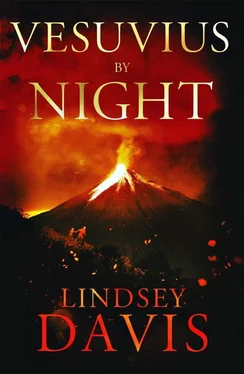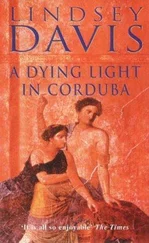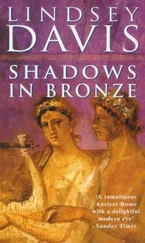‘What have you seen, chuck?’
‘There’s a fire behind the mountain.’
His daughter Marciana, eight years old, was the original reason the painter had rented a room of his own. She stayed with him sometimes. It gave him an excuse to limit how much he fraternised with his colleagues, being something of a loner. Even before he decided to sublet, his daughter had camped out downstairs at the lodgings. Now, no way was he having her come into contact with Nonius. Nonius, with his various unpleasant habits, had no idea Marciana even existed.
When he found her outside, the curly-haired little girl was rapt, staring towards the dramatic view of Mount Vesuvius; the tall local mountain, beloved of Bacchus and one-time refuge of Spartacus the rebel slave, dominated sightlines, elegantly framed by the distant city gates. Lush to its familiar high, craggy summit, packed with prosperous farms and vineyards, Vesuvius was one of many peaks in the area, yet it stood slightly isolated from the rest, with special charm. That must be why it had its own name. Five miles from the sea, it was always touched by threads of incoming cloud, dreaming in sunlight as it had done for generations.
‘Come out of the road!’
Many a child in the Empire was killed by an accident with a cart; drivers were madmen, utterly thoughtless, often drunk or dozing too. Anxious to retrieve his moppet, the painter was nevertheless distracted by what had so fixed her attention.
Behind the mountain as they saw it from Pompeii, clouds of grey smoke were filling the sky. If it was a forest fire, this was a strange one. The painter remembered hearing a sharp bang, but it had been distant and at the time he’d been concentrating on mixing a paint colour.
Nobody had ever suggested Vesuvius was volcanic, as far as he knew. If that had ever been true, it was long extinct. Most hills in the Italian landmass looked similar in form, from the long barricade of the Apennines to this circle of ancient peaks around the Bay of Neapolis. The Apennines were unstable, with regular landslides, rockfalls, mudflows and sinkholes. But the painter believed Italy had only one active volcano, the legendary Etna in Sicily. He dreamed of going south to see it, so he could paint Etna spewing fire, with the philosopher Empedocles throwing himself into the crater in order to prove he was immortal – while the mountain contemptuously hurled one of his sandals back to show he was not. The possibilities for contrast between dark and fiery light, the chance to show violent activity, were seriously alluring. Well, one day…
Not here though. Not here, despite recent warning signs. When, this very week after the Rustic Vine God Festival, growers had returned to town after inspecting their Vesuvian grapes before harvest, they claimed to have seen the ground bulging and even seen fumaroles like those that boiled and steamed in the Phlegraean Fields. They reckoned their vines were being scorched, ruined by unusual ash deposits.
Many chose to disbelieve them, which was the convenient response. A straggle of nervous folk did take fright. Everyone else said they were only looking for an excuse to visit relatives or to escape nagging spouses. Many of their neighbours were trapped in inertia, because if they left, where could they go? People had to live.
As the painter looked at the smoke, now almost draping Vesuvius in a grey fog, his mouth went dry. He felt his heart lurch. He reached for his daughter, intending to bring her back onto the pavement, when a new event happened. They heard it and felt it: a terrific rolling bang, the movement of air hurting their ear-drums, panic striking the soul. It was so strong the painter staggered, almost thrown off balance. Clutching at him, the child cried out.
‘Hades,’ he said to himself. He often talked out loud to nobody. He recovered. He grasped his daughter by the hand, feeling her cower against his leg, hearing her whimper.
What he and the child saw next was utterly unexpected. Rooted to the spot, he could not believe what he was watching. It was momentous. The top of the mountain had blown right off.
He was a fatalist. He knew straightaway that he would not paint the waiting wall panel.
So the painter and his daughter sensibly decide what to do.
The painter’s name was Larius. Larius Lollius.
Everything had begun for him twenty-three years before, in an upstairs room high over a forlorn back alley on the Aventine Hill in Rome. He was born the first child of hopeless parents, who claimed they had wanted him, but never sounded persuasive. His mother, Galla, was a floppy, washed-out woman, exhausted by life even before she produced too many offspring; his squint-eyed father, Lollius, was a Tiber water-boatman, a feckless predator on such as she, yet a man who would never resolve his family’s distress by decently abandoning them. He vanished whenever things got tough, but always returned to cause more upset and land Galla with yet another child. Off again when the bills came in. Rollicking home once more, just when his children were learning to prefer the peace of his absence.
Galla belonged to a large family and when Larius was fourteen, better-off relatives had kindly brought him on holiday to the Bay of Neapolis. It was the most beautiful spot in the Empire, perhaps the best in the world. That huge bowl of enclosed water, surrounded by cliffs and mountains, bewitched him. The call of ships and the sea turned his young brain, until his entrancement took the form of falling in love. First love. His first mistake in life. The fatal one.
At the same time, he had seen local fresco-makers at work and realised he wanted to be a painter. This at least was no mistake – o gratitude, all you wondrous gods – but what he had been born for. His family reckoned he was ‘going through a difficult phase’, by which they meant he was an adolescent boy who read poetry and had high ideals. Ideals were no use to working people in Rome. Poetry made them fear they could no longer control him. But his choosing a career in art was useful. Having a ‘career’ at all was a hilarious novelty, which meant they could stop wondering what to do with him.
When his relatives went home, he stayed. His parents would be furious, but he knew they lacked the energy or resources to come and fetch him. He was free. He had taken charge of himself. He was having a good time, too.
He stayed in Campania with his true love, Ollia, who had been a nursemaid to some children in the holiday group he came with. A podgy, acne-ridden lump, she was a year older and a little dimmer than Larius realised. She was his first girlfriend; somehow he’d wrested her from a brawny local fisherboy, who had caught her eye by throwing nets around attractively. He never caught much.
That boy’s family had hoped he would get Ollia pregnant. They thought that insisting on marriage would allow their lad to adopt a better life in Rome when Ollia went home. Everyone in Rome did well – everyone else knew that. Relatives might gain material advantages from the fisherboy’s lucky transferral to this city of magical prosperity; they might even follow as hangers-on…
Eight years had passed. They were still waiting for it to happen. Even though Ollia lived with Larius, they thought the marriage would come to nothing. One day fate would work for the fishing folk. Slow people, but bizarrely trusting.
Larius and Ollia still saw them occasionally, when they wanted a day by the sea and a fish supper. The lad, Vitalis, hung around; hanging around had always seemed to be his main activity.
For Ollia, marriage turned out dismally. She now knew that she was permanently stuck right here with Larius or, worse, without him. Even if he left her, she would never get away from the life they had foolishly chosen in their teens.
Читать дальше












